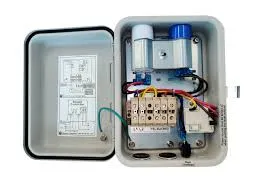The Versatility of Butyl Tape Rubber in Various Applications
In the realm of adhesive solutions, butyl tape rubber stands out as an incredibly versatile and effective material. Known for its remarkable adhesion properties, weather resistance, and durability, butyl tape is commonly used across various industries, including construction, automotive, and marine applications. This article will explore the unique properties of butyl tape rubber, its various applications, and why it is considered a staple in adhesive solutions.
What is Butyl Tape Rubber?
Butyl tape rubber is a type of adhesive tape made from a synthetic rubber called butyl. Characterized by its excellent sealing capabilities, butyl tape is often used for bonding, sealing, and waterproofing various surfaces. Its formulation allows it to remain flexible even in extreme weather conditions, making it suitable for both indoor and outdoor applications. The rubber's inherent properties also offer a high level of resistance to moisture, UV rays, and extreme temperatures, which further enhances its usability in different environments.
Key Properties of Butyl Tape Rubber
One of the primary advantages of butyl tape rubber is its strong adhesion. The tape adheres to a wide variety of substrates including metal, glass, concrete, and plastics, creating a reliable bond that withstands external stresses. Furthermore, butyl tape remains elastic over time, which allows it to accommodate movements and shifts in the materials it bonds. This flexibility is crucial in construction, where materials may expand or contract due to temperature fluctuations.
Additionally, butyl tape is resistant to water and moisture. This characteristic makes it an ideal choice for automotive sealing applications, ensuring that vehicles remain watertight and insulated. The tape's resistance to chemicals and aging also contributes to its long-term performance, reducing the need for frequent replacements.
Applications of Butyl Tape Rubber
1. Construction Industry
butyl tape rubber

In construction, butyl tape rubber is extensively used for roofing applications. It provides a waterproof seal for joints and seams, preventing leaks and water intrusions. Builders also utilize butyl tape for window flashing, ensuring a tight seal around windows to enhance energy efficiency and prevent leaks.
2. Automotive Industry
In the automotive sector, butyl tape plays a crucial role in securing windshields and automotive trim. Its excellent adhesive properties ensure that these components remain securely fastened, while its moisture resistance protects against water ingress. Additionally, butyl tape is used in bonding various interior parts, contributing to overall vehicle stability.
3. Marine Applications
For marine use, butyl tape rubber is favored for its ability to create watertight seals to prevent leaks in boats and ships. It is used for sealing hull joints, deck fittings, and mechanical parts exposed to harsh marine environments. Its resistance to saltwater and UV radiation makes it particularly suitable for prolonged exposure to the elements.
4. DIY Projects
Butyl tape is also popular among DIY enthusiasts and professionals alike. It is often used for crafting and repair projects, ranging from household repairs to automotive applications. Its ease of use and reliability make it a preferred choice for those looking to achieve quick and effective results.
Conclusion
The versatility and effectiveness of butyl tape rubber make it an invaluable tool across various industries. Its unique properties, including strong adhesion, weather resistance, and flexibility, allow it to perform exceptionally well in many applications. Whether for construction projects, automotive repairs, marine maintenance, or DIY tasks, butyl tape rubber proves to be a reliable solution that continues to meet the needs of modern consumers. As technology advances and new applications are developed, the importance of butyl tape rubber in adhesive solutions will undoubtedly grow, solidifying its place as a staple in various sectors.
-
XIANGFAN Rubber Tape-Ultimate Solutions for All Your Insulation NeedsNewsJun.24,2025
-
XIANGFAN Rubber Tape-Protection for Industrial and Residential ApplicationsNewsJun.24,2025
-
XIANGFAN Rubber Tape: Superior Safety and Sealing for Demanding EnvironmentsNewsJun.24,2025
-
XIANGFAN Rubber Tape: Reliable Solutions for Every Electrical ChallengeNewsJun.24,2025
-
XIANGFAN Electrical & Industrial Tape: Powering Reliability Across IndustriesNewsJun.24,2025
-
XIANGFAN Electrical & Industrial Tape: Excellence in Every ApplicationNewsJun.24,2025
